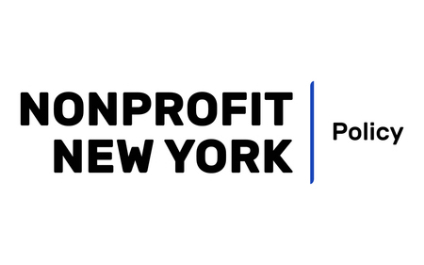[img src=”https://npccny.pi.bypronto.com/2/wp-content/uploads/job-manager-uploads/company_logo/2019/10/NPNY-Policy-RGB_Color.png” class=”aligncenter”]
Federal
Repeal of Nonprofit Transportation Tax! The Senate voted to approve two spending bills: 1) the Consolidated Appropriations Act, H.R. 1158, (which funds the Departments of Commerce, Defense, Homeland Security, Justice, Treasury, and general government operations at $860 billion), and 2) the Further Consolidated Appropriations Act, H.R. 1865, which, as amended, repeals the 21% tax on nonprofit transportation benefits. The bills are nicknamed Mini-bus #1 and Mini-bus #2. Once enacted, nonprofits that paid the benefits-related unrelated business income tax will be entitled to a refund of the taxes paid, but not the administrative and accounting expenses incurred in calculating it. While filing amended tax returns is the normal way to claim refunds, the IRS may be convinced to develop an alternative or streamlined approach in the near future. On January 8, House Ways and Means Committee Chair Richard Neal (D-MA) and Oversight Subcommittee Chairman John Lewis (D-GA) sent a letter to the IRS Commissioner asking the Service to create an expedited process so nonprofits can quickly secure refunds.
Foundation Excise Tax Reform: Section 206 of the manager’s amendment (attached to H.R. 1865), includes a provision that replaces the two-tier excise tax that private foundations pay on investment income with a flat-rate excise tax rate of 1.39 percent.
Health Tax Reforms: The underlying appropriations bill, H.R. 1865, also includes several major tax policy changes. It repeals three taxes in the Affordable Care Act (Obamacare): the medical device excise tax; the annual fee on health insurance providers; and a special tax on certain employer-sponsored health plans (nicknamed the Cadillac tax). Further, the bill enacts the Setting Every Community Up for Retirement Enhancement (SECURE) Act, a popular package of retirement security provisions that passed the House earlier this year.
Medical and Moving Rate Drops to $.17/mile. In an IRS notice issued on December 19, 2020, the rate for medical and moving expenses, previously adjusted by Treasury at $.20/hour dropped to $.17/hour.
New Postal Pricing Proposal Will Threaten Nonprofit Mailers: From Venable LLP: On December 5, 2019, the Postal Regulatory Commission (PRC) proposed changes to the system that regulates prices for so-called market-dominant mail, which includes much of the mail sent by nonprofit organizations. The PRC’s proposed revised rules and request for public comment were published in the Federal Register on December 11, 2019. The proposed changes, if implemented, would allow the U.S. Postal Service to charge significantly higher prices for some types of mail on which nonprofit organizations rely.
Update on E-Filing. The IRS on December 13th clarified new filing requirements and due dates for tax-exempt organizations. (See IR-2019-206.) The new e-filing requirements, enacted this summer as part of the Taxpayer First Act, are in effect for most nonprofits in tax years beginning after July 1, 2019, meaning that most e-filings of Form 990 from charitable nonprofits and Form 990-PF from private foundations won’t be due before Dec. 15, 2020. The statute granted a one-year extension to smaller nonprofits submitting Form 990-EZ , but they may file online voluntarily. In 2020, the IRS will continue to accept paper forms that have not yet been converted to electronic format, such as the Form 990-T used for reporting unrelated business taxable income.
New Joint Employer Rule. On January 12, 2020, the U.S. Department of Labor (DOL) finalized its makeover of the joint employer rule which now narrows the joint employer definition and adds clarity about the circumstances under which two parties will be considered joint employers. A person or entity is considered a joint employer if they are “acting directly or indirectly in the interest of an employer in relation to the employee.” For more guidance on the rule, visit Venable LLP’s analysis.
National Council of Nonprofits 2020 Policy Forecast. Threats and opportunities don’t only come from the federal government — especially in an election year. Here’s a guide for nonprofits to assess, plan for, and help shape what’s ahead at the local, state, and federal levels. Read the article.
State
Ban on seeking applicant salary history takes effect. S06549/A5308-B, which prohibits employers from seeking salary history from applicants took effect January 6th, 2020. Employers are now prohibited from asking job applicants about wage and salary history in an effort to address the gender wage gap.
City
January 31 deadline to elect Conditional Indirect Cost Rate. Nonprofit contracted providers for the City have until January 31, 2020 to elect a Conditional Indirect Cost Rate (ICR). A provider must establish an ICR (according to policies and procedures in the City’s Cost Manual) through a federal Negotiated Indirect Cost Rate agreement or Independent Accountant’s Report. The ICR is retroactive to July 1, 2019 and applicable through the City’s fiscal year 20 year (ending June 30, 2020).

